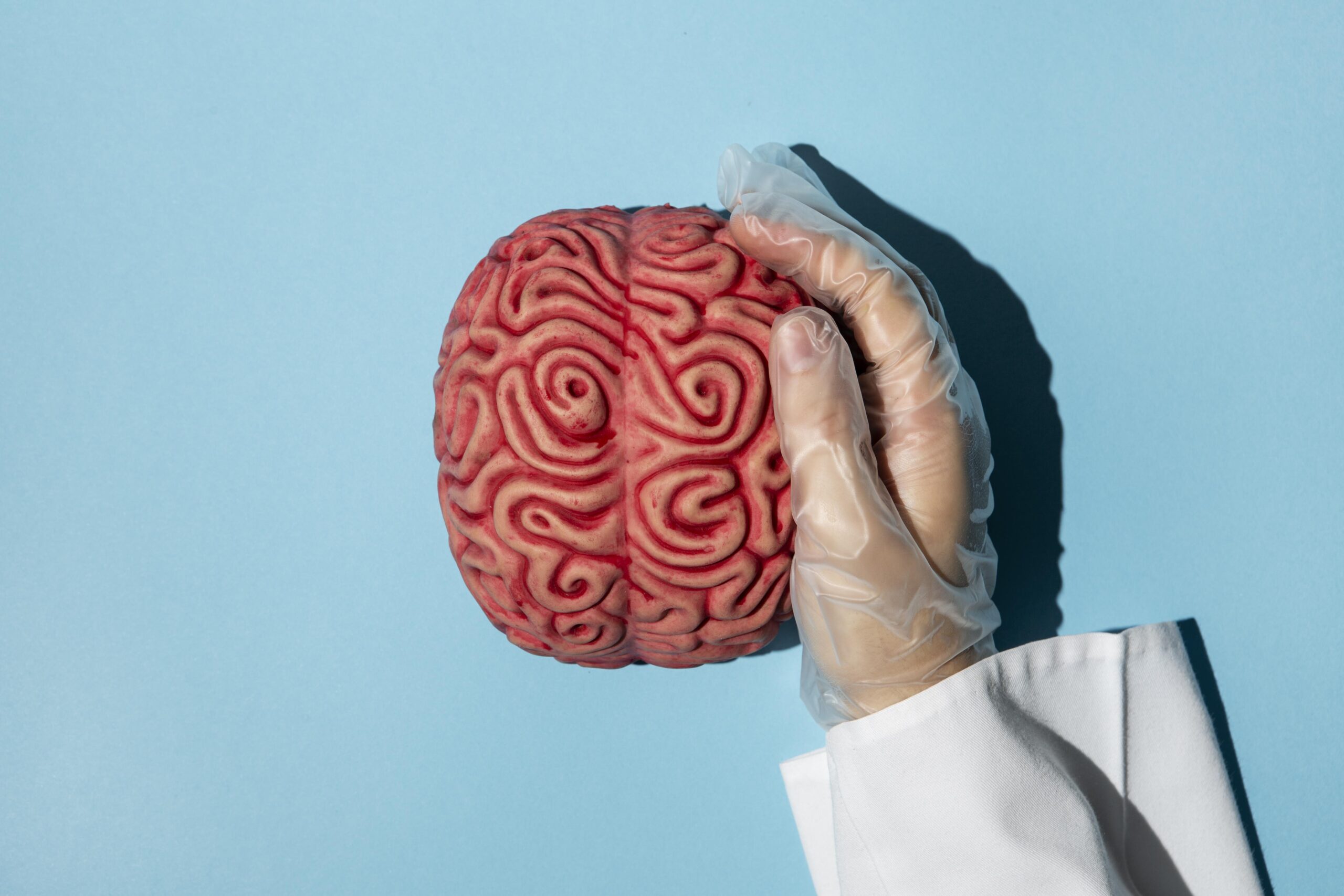Amnesia is included in the group of dysmnesia, i.e., quantitative memory disorders, and is defined as a permanent or temporary abolition of the declarative memory function; loss of episodic memory usually occurs in this condition.
The International Statistical Classification of Diseases and Related Health Problems (ICD-10) categorizes amnesia with the code R41, among other signs and symptoms of cognition and consciousness-related diseases.

Memory![]() , an ability encoded in DNA, enables the temporary or permanent accumulation and retrieval of information over varying durations. The process of creating memories encompasses four distinct phases:
, an ability encoded in DNA, enables the temporary or permanent accumulation and retrieval of information over varying durations. The process of creating memories encompasses four distinct phases:
Memory exists in diverse forms, with short-term![]() and long-term memory
and long-term memory![]() being the most commonly used. Short-term memory, also known as working memory, facilitates the retention of immediate sensory input. It plays a crucial role in acquiring and assimilating new information, as some data stored in short-term memory contributes to the formation of enduring memories through biological processes.
being the most commonly used. Short-term memory, also known as working memory, facilitates the retention of immediate sensory input. It plays a crucial role in acquiring and assimilating new information, as some data stored in short-term memory contributes to the formation of enduring memories through biological processes.
Disorders primarily affect short-term memory. The hippocampus, a vital component of the brain responsible for memory consolidation, is essential in this process. Fresh memories undergo processing in the hippocampus before being transferred as protein engrams to the relevant cortical regions of the brain. Memories, thus processed, are less susceptible to disruption.
Various types of amnesia![]() exist, with the primary division concerning organic and psychogenic amnesia. Another classification in ICD-10 pertains to the loss of the ability to recall the moment of the event causing this condition.
exist, with the primary division concerning organic and psychogenic amnesia. Another classification in ICD-10 pertains to the loss of the ability to recall the moment of the event causing this condition.
Retrograde amnesia![]() means the patient lost their ability to remember events just before the circumstance that caused this condition. It usually concerns new memories, not those made years ago.
means the patient lost their ability to remember events just before the circumstance that caused this condition. It usually concerns new memories, not those made years ago.
Anterograde amnesia![]() means the individual cannot remember recent information since this condition occurred. However, this person may still recall data from before the event that caused the issue.
means the individual cannot remember recent information since this condition occurred. However, this person may still recall data from before the event that caused the issue.
Transient global amnesia![]() is a temporary form of this condition. It is typified by sudden onset anterograde and occasionally retrograde amnesia, typically resolving within 24 hours without concurrent neurological manifestations. Transient global amnesia tends to resolve within a short amount of time – usually a day. The patient can constantly ask the exact question without remembering the past few hours. Once this memory disorder is resolved, it infrequently recurs.
is a temporary form of this condition. It is typified by sudden onset anterograde and occasionally retrograde amnesia, typically resolving within 24 hours without concurrent neurological manifestations. Transient global amnesia tends to resolve within a short amount of time – usually a day. The patient can constantly ask the exact question without remembering the past few hours. Once this memory disorder is resolved, it infrequently recurs.
Post-traumatic amnesia![]() , a common occurrence, serves to render patients uninformed of procedures. It happens after a consequential injury to the head or experiencing a traumatic event (e.g., abuse or combat). It can have a form of either anterograde amnesia, retrograde amnesia, or both.
, a common occurrence, serves to render patients uninformed of procedures. It happens after a consequential injury to the head or experiencing a traumatic event (e.g., abuse or combat). It can have a form of either anterograde amnesia, retrograde amnesia, or both.
Dissociative amnesia![]() occurs because of an issue related to mental health. Traumatic events, abuse, and other severe sources of psychological distress may induce it. Some specialists say that it is a defense mechanism that the brain uses to protect the affected individual from what they experience.
occurs because of an issue related to mental health. Traumatic events, abuse, and other severe sources of psychological distress may induce it. Some specialists say that it is a defense mechanism that the brain uses to protect the affected individual from what they experience.
In seniors, amnesia is predominantly associated with neurodegenerative conditions and stroke-related afflictions. Among adults, this condition is frequently a consequence of head trauma, accidents, or as a component of dissociative fugue.
In children, amnesia about the initial three years of life is a physiological process linked to central nervous system alterations, speech development, and increased hippocampal neuron count. During childhood amnesia![]() , you cannot recall events in your early years.
, you cannot recall events in your early years.
Loss or apparent memory impairment never arises without a cause![]() , except infantile amnesia, a natural phenomenon. If memory loss occurs beyond early childhood, it is typically a result of damage to nervous system cells.
, except infantile amnesia, a natural phenomenon. If memory loss occurs beyond early childhood, it is typically a result of damage to nervous system cells.
Memory loss may result from alcohol consumption, characterized by the temporary loss of current memory. Alcohol-induced amnesia![]() stems from brain cell damage and impaired secretion of neurotransmitter hormones. Individuals addicted to alcohol, consuming it frequently and in large quantities, are more vulnerable to neurodegenerative diseases. Memory loss may also follow even small amounts of alcohol, particularly in individuals with no prior exposure.
stems from brain cell damage and impaired secretion of neurotransmitter hormones. Individuals addicted to alcohol, consuming it frequently and in large quantities, are more vulnerable to neurodegenerative diseases. Memory loss may also follow even small amounts of alcohol, particularly in individuals with no prior exposure.
Memory loss may also ensue after an accident, often due to mechanical brain damage. Post-traumatic amnesia, contingent on the extent of damage, may be temporary or permanent. Memory loss resulting from a severe head injury leading to a concussion occurs, for instance, in the aftermath of traffic accidents, falls from a height, and physical violence.

Furthermore, memory loss may occur after the administration of certain medications. It typically manifests as anterograde amnesia, particularly concerning current events. It frequently arises after psychotropic drugs, anticonvulsants, and general anesthetics but may also occur with hypertension medications.
Upon experiencing a stroke, whether ischemic or hemorrhagic, individuals may suffer brain cell damage and memory loss. Ischemic stroke, due to cerebral hypoxia, often leads to irreversible changes. Still, the extent of the damage and timely intervention play crucial roles in mitigating the most severe consequences of a stroke.
In the realm of heart and circulatory system diseases, conditions such as very high blood pressure or atherosclerosis can yield effects akin to those of a stroke, potentially resulting in damage to cerebral blood vessels and subsequent memory loss. Neurological deficits and memory impairment may also manifest following sudden cardiac arrest, as temporary brain hypoxia can lead to lasting tissue damage.
In the context of diabetes, elevated blood sugar levels may induce partial cerebral hypoxia.
After an epileptic seizure, individuals with epilepsy may experience symptoms of dementia and memory loss. Medical professionals recognize several dozen types of epilepsy, and contrary to common belief, not all are characterized by uncontrolled bodily convulsions. At times, the condition involves a temporary loss of consciousness and subsequent memory loss. Epileptic seizures can manifest during wakefulness and sleep and may also occur following radiotherapy, which can lead to damage in the cells of the cerebral cortex.
In cases involving a brain tumor, memory loss is particularly prevalent when the tumor is situated in the frontal or temporal lobe, exerting pressure on the memory centers.
Amnesia may give rise to memory loss and illusions, characterized by the brain's improper processing of memories. Symptoms are also contingent on the underlying cause of the amnesia and the associated disease, which may contribute to sudden or gradual memory impairment.
For instance, when amnesia co-occurs with Parkinson's disease![]() , uncontrolled movements of the hands may also be present. In subsequent stages, these movements may affect other parts of the body. If a brain tumor is the underlying cause, a variety of neurological symptoms may ensue, including severe headaches.
, uncontrolled movements of the hands may also be present. In subsequent stages, these movements may affect other parts of the body. If a brain tumor is the underlying cause, a variety of neurological symptoms may ensue, including severe headaches.
Patients presenting with memory disorders are commonly referred to neurologists; however, the specialized field addressing such conditions is neuropsychology. The diagnosis of patients exhibiting central nervous system dysfunctions resulting from accidents, brain injuries, tumors, nervous system diseases, and elderly individuals displaying symptoms of dementia, notably memory loss, is typically conducted by neuropsychologists or neurologists.
Patients with memory disorders are often referred to a neurologist, but the specialization dealing with this type of disorder is neuropsychology. It is a neuropsychologist or neurologist who diagnoses patients who have disorders in the functioning of the central nervous system as a result of accidents, brain injuries, brain tumors, diseases of the nervous system, and elderly people with symptoms of dementia, in which one of the symptoms are situations in which the patient forgets various things and episodes from your life, including the important ones.
During the examination, simple tests are used; the patient is asked to perform simple mathematical calculations or indicate the hours on a dial clock.
An interview with the patient, observation, and clinical examination are important and should provide answers to, among others, questions such as:
Depending on the reasons, apart from a neuropsychologist and a neurologist, other specialists may also participate in the diagnostic process![]() – a psychiatrist or a psychologist. Laboratory and neuroimaging tests are also used (e.g., magnetic resonance imaging, electroencephalography – EEG, or computed tomography).
– a psychiatrist or a psychologist. Laboratory and neuroimaging tests are also used (e.g., magnetic resonance imaging, electroencephalography – EEG, or computed tomography).
Amnesia, in all its forms, makes normal functioning difficult or impossible. The specialists focus on techniques to help make up for the memory problem. One of the most significant treatment![]() rules is addressing underlying conditions causing the issue.
rules is addressing underlying conditions causing the issue.
The patient can work with an occupational therapist to memorize new data and replace what they've forgotten. Memory training also may contain techniques for categorizing information to make recall more manageable.
Many individuals with amnesia find it practical to utilize smart technology. With some training and practice, they may use electronic organizers to support their day-to-day activities. For example, they can program their smartphones to remind significant occasions or about taking medicines.
No medications are presently known to treat most amnesia. However, drugs may treat underlying conditions that cause memory issues. For example, in the cause of Alzheimer's disease, therapy with medicines called cholinesterase inhibitors may help with symptoms.
Science can one day lead to new therapies for memory conditions. Nevertheless, the complexness of the brain functions affected makes it doubtful that a single medication can resolve memory problems.
Psychotherapy can help identify and manage traumatic amnesia origins. Especially cognitive behavioral therapy is useful. It helps the patient create strategies to counter destructive behaviors and thoughts.
Some specialists recommend hypnosis to help the affected individual recover lost memories and stop ongoing memory loss. Also, meditation is used to relieve stress.

In the meantime, one thing can be recommended to people whose loved one suffers from amnesia: patience. It is obvious that when a loved one – a husband, grandparent, or child – does not remember the greatest moments spent with us, it may cause sadness or disappointment. Still, nerves, anger, or other negative emotions will not help restore the memory of our loved ones.
Amnesia may subside after some time, which we should patiently wait for while supporting the patient with this condition as much as possible. After all, they are the ones who feel the consequences of their lack of memory the most.
Of the many types of memory disorders, amnesia has the worst social consequences. This disease takes a huge part of the patient's life, depriving them of memories, and to a large extent, it also takes away feelings related to loved ones. It is very difficult for a person who does not remember their past to build a future. Unfortunately, it is a disease whose development we do not always have any influence on. However, it is always better to try to prevent developing memory disorders.
Healthy people should take care of a healthy lifestyle – provide themselves with an adequate amount of sleep and nutritious food. Be physically active. Specialists recommend at least 150 minutes of moderate or 75 minutes of vigorous activity per week.
Stay mentally active. Regularly engage in brain-stimulating activities. For example, learn to play a musical instrument, do crossword puzzles, or read a book.